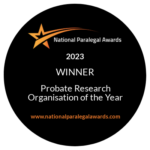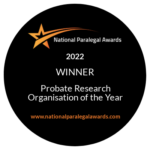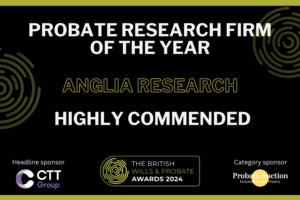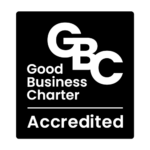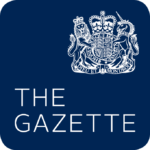Shining a light on the past
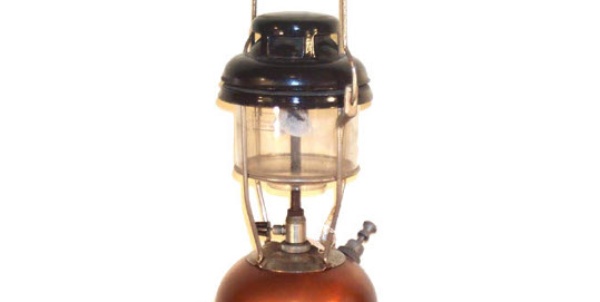
“I don’t view this as a job in the conventional sense, because I’m so immersed in the work.” An interview with Anglia Research’s Cherrill Theobald.

When Cherrill Theobald decided to leave teaching and turn her hobby into a business, she had no intention of becoming a genealogist.
“I ran my gardening business for many years,” she says. “I still enjoy gardening, but my joints don’t agree.”
Always in the background, though, there was the pull of the past.
“History was never far from the surface through my childhood and growing up, because my own family is interesting. My great grandfather invented the Tilley lamp.”
This may not have much resonance for most of us today, but the lamp John Tilley invented in 1813 proved so useful that by World War II ‘Tilley’ had become the generic name for a paraffin lamp, in much the same way that all vacuum cleaners are ‘Hoovers’.
In Cherrill’s youth, curiosity about her family’s past led her and her brother to Somerset House to find out more about their great-uncle, who died in the First World War, aged only 19.
That early experience of sifting through indexes and poring over records stayed with her, waiting in the background until the mid-1990s. Then – with a casualness that’s characteristic of most life-changing events – it stepped, centre stage, into her life.
Listening to the radio one morning, Cherrill caught a segment about a two-year course in family history, organised to coincide with the opening of the new record office in Winchester.
“I was so enthused that I signed up immediately,” she says.
Two years later she was turning her dissertation on the Tilley family into a book, and genealogy had become a way of life.
Her gardening business was going from strength to strength, but that didn’t deter her. She started up as a professional genealogist, taking on an ever-increasing workload of research, hunting down records in repositories, searching through microfiches, investing in the 1881 census and sorting out countless drawers of old papers and photos, to make sense of them for clients.
For 14 years she juggled two businesses, but by 2008 the physical demands of gardening were becoming too much. It was around this time that she spotted an advertisement for a researcher in the newspaper.
Looking back, Cherrill admits, “I honestly thought I knew all there was to know about genealogy when I joined Anglia Research. But within a few days of meeting Peter Turvey, I realised just how much I didn’t know!
“The number of specialist resources and databases that I had never heard of before really opened my eyes.”
Perhaps the biggest surprise for Cherrill was how much she could learn simply from working with other genealogists as colleagues.
“Having other researchers around you, means you’re constantly picking up new approaches,” she explains. “You’re always learning about additional resources, adding to your historical knowledge and extending your skills.”
Nowadays she believes that it takes time to develop genuine expertise. “Specialist research skills don’t come to you overnight. I have found that it takes years to absorb all of the angles and knowledge needed to solve the hardest genealogical puzzles. I never fail to be surprised by twists and turns in uncovering the past.
“What I have learned in my work for Anglia Research is to stay focused. But also to keep an open mind: never stick rigidly to spellings of names; never assume anything when it comes to relationships and how people live their lives.”
A knowledge of social history, built up over many years, means that Cherrill can often predict where someone who has disappeared from the historical record is likely to resurface.
“I like to get under the skin of the family I’m researching,” she says, “so that I can think creatively to find missing heirs.”
Her favourite cases are the ones: “where from a tiny bit of information I piece together a much bigger picture.
“For example, I researched a family in Wales and confirmed the identity of a man through his particular place of work, simply from his recorded occupation of ‘boots. hotel’. His job was to clean shoes in a hotel and, in passing, I loved learning that Lewis Carroll used to stay there frequently.”
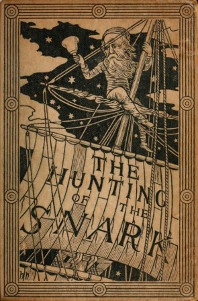
Cherrill freely admits she finds genealogy addictive – which must make coming to work a joy. “I relish the puzzle of seeing who’s who in a family, who is missing and where they have gone,” she says.
“I don’t look at this as a job in the conventional sense, because I’m so immersed in the work.”
2025 Anglia Research Services All Rights Reserved.
Anglia Research and Anglia Research Services are trading names of Anglia Research Services Limited, a company registered in England and Wales: no. 05405509
Marketing by Unity Online

